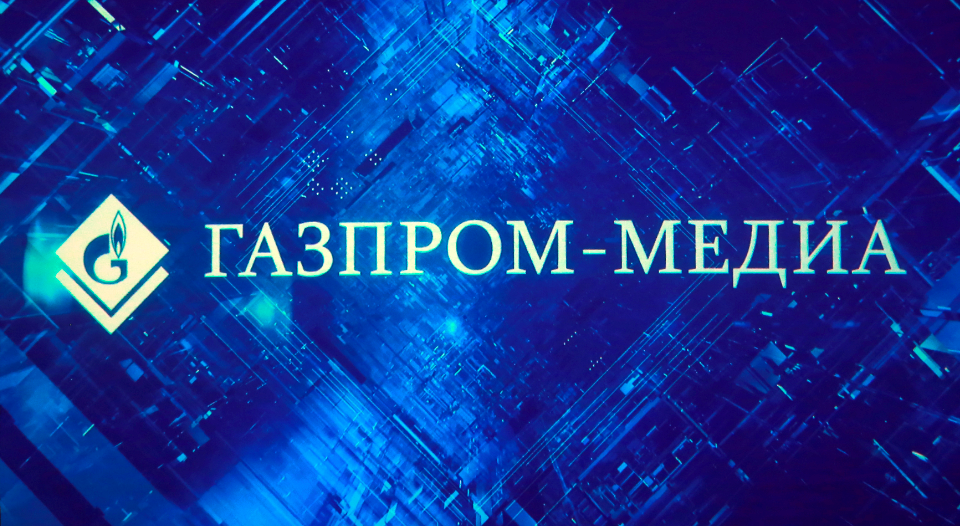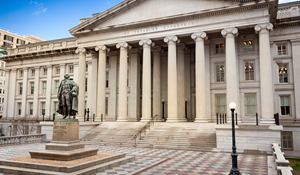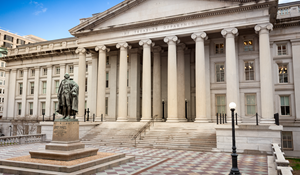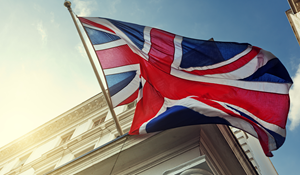By Abigail Buhrman
September 10, 2019
NTV, one of Russia’s top television networks, ran a news story on Monday blaming “provocateurs” for thousands of reported violations during regional elections held over the weekend.
NTV, a piece of the massive media empire controlled by Gazprom Media, a subsidiary of state-owned Russian energy giant Gazprom, reported that two-thirds of the election violations cited by Golos, Russia’s leading election-monitoring organization, were fake and sent in by provocateurs. The fakes were sent from servers in the U.S., NTV reported, citing Maxim Grigoryev, a representative of the Russia Public Chamber’s working group on election control.
Golos had said it received more than 2,000 notifications of possible violations and reported that a disinformation campaign was launched against it in order to discredit the organization on the day of the election. The organization, prior to NTV’s report, admitted it received about 900 falsified violations but said the majority were identified and deleted by moderators. (The leading party, United Russia, maintained its majority in the Moscow Assembly, though it sustained significant losses during nationwide regional elections held Sunday, Sept. 8.)
Originally a network of minor television stations, Gazprom Media is now the largest Russian media holding in terms of revenue. The company was named in September 2016 to a U.S. sectoral sanctions list; the measures don’t freeze its assets, but they do prohibit some debt and equity transactions.
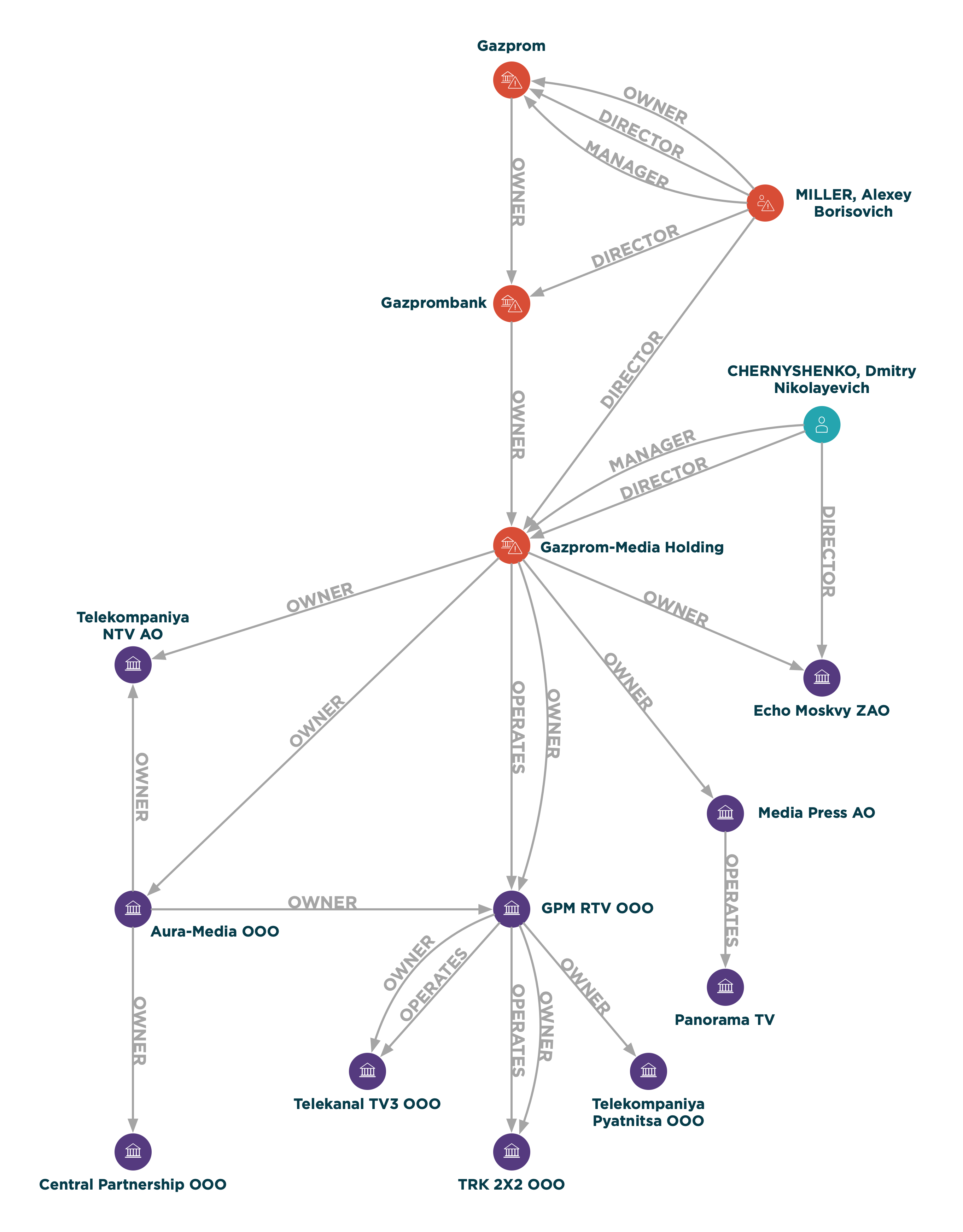
The coverage of the purported election violations provides a glimpse into how Gazprom Media has changed its various media holdings. Among the assets held by Gazprom Media are NTV and Ekho Moskvy, one of the country’s top talk-radio stations. Its corporate structure encompasses more than 200 companies operating in television, radio, film and print media, according to research by Kharon.
Gazprom Media bought NTV in 2001, when it acquired Media Most, then the largest private media conglomerate in the country, from Vladimir Gusinsky. Media Most transferred shares to Gazprom Media as part of a debt settlement agreement struck after Gazprom had demanded payment for $211.6 million it had paid as a guarantor on a loan. The transfer took place amid a series of arrests, lawsuits, and raids on Media Most offices by Russian law enforcement that culminated in Gazprom Media taking physical control of NTV.
Ekho Moskvy, which also had been a Media Most asset, was part of the same deal.
I WANT MY NTV
NTV, founded in 1993 and historically known for its biting political satire and critical coverage of the Kremlin, has hewed much closer to the Russian state line since the Gazprom Media takeover, including in its coverage of the summer’s weekend protests in Moscow.
Demonstrators seeking to overturn the exclusion of opposition candidates from local polls were met with force. NTV reported on Aug. 19 that foreign diplomats were “overseeing” the protests and “preparing reports for their countries’ governments.”
The station also broadcast a video from the Investigative Committee of Russia, describing the protesters as people whose “emotional reactions dominate the rational” and who are under the influence of “puppeteers.” Human Rights Watch accused NTV in May 2019 of using “abusive tactics” in its coverage of Russian activists, saying that NTV “routinely uses stalking, privacy invasion, [and] harassment” to get its footage.
Ten years after Gazprom Media assumed ownership, NTV was described by Radio Free Europe/Radio Liberty as “almost entirely an entertainment channel.” The entertainment programming spans movies, dramas and educational programs, as well as socio-political talk shows. More recently, though, Western media outlets have dubbed NTV as “Russian state TV” because of its pro-Kremlin spin.
Despite the changes, NTV remains popular, claiming nearly 40 million viewers per week. NTV also maintains offices abroad, including in Crimea, the U.K., Israel and the U.S., according to records reviewed by Kharon.
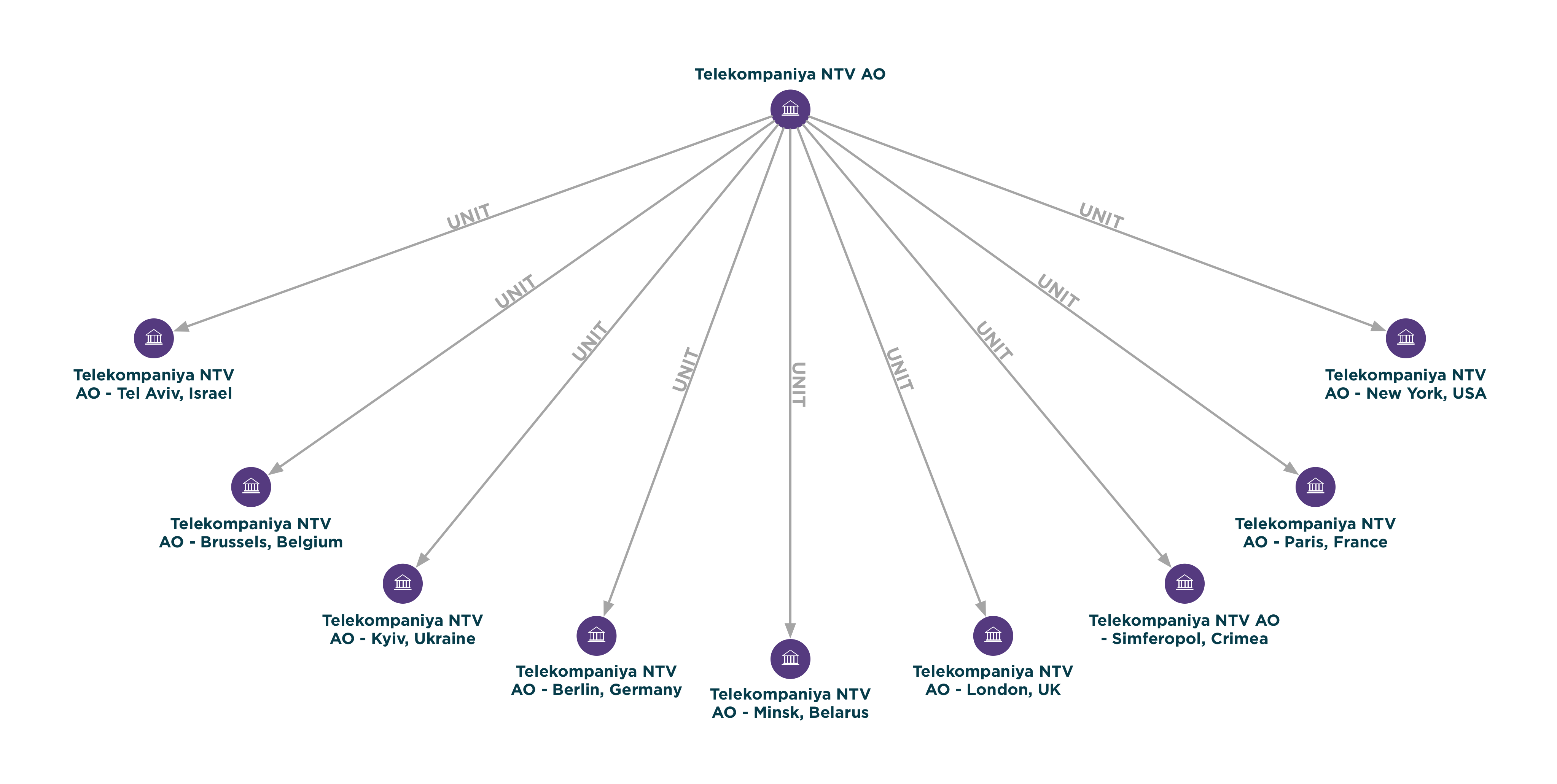
Aleksandra Kosharnitskaya, the editor-in-chief of NTV, said in an October 2018 interview to commemorate NTV’s 25 years of operation that the station “has become a true chronicler of time” in modern Russia. As for how NTV has changed over the past two and a half decades, Kosharnitskaya said: “Time changes, the interests of the audience change, we change. What remains unchanged is that NTV is a channel that leaves no one indifferent.”
EKHO MOSKVY: RESISTANCE RADIO
Though NTV may have changed over time, another former Media Most company now controlled by Gazprom Media has maintained its coverage of content critical of the Russian government.
Radio station Ekho Moskvy soldiers on despite threats to the physical safety of the station’s staff. Gazprom Media currently owns about two thirds of the station. It’s one of the most popular talk radio stations in Russia, with about 3 million daily listeners tuned in from October 2018 to March 2019, and featuring guests at odds with the Kremlin, including opposition leader Alexei Navalny, who has been interviewed regularly on Ekho Moskvy since 2004. Navalny’s latest appearance was Aug. 29, days after his release from prison.
Ekho Moskvy also published an investigative report by journalist Ivan Golunov on corruption in Russia’s funeral business; Golunov had been working on the report at the time of his arrest in June 2019 on drug charges. He was released five days later following mass public outrage.
Gazprom Media has made its presence felt at Ekho Moskvy through a series of managerial makeovers since it acquired the station, including a brief period in which the editor-in-chief, Alexei Venediktov, lost his board seat. Ekho Moskvy’s board of directors was chaired by Dmitriy Chernyshenko, the current director general of Gazprom Media, as of March. And Gazprom Media controls the board, as it holds a majority of the seats; it can remove the editor-in-chief of the station at any time, according to the station’s charter.
Ekho Moskvy has taken out two lines of credit from Gazprom’s financial arm, Gazprombank — one in 2016 worth RUB 40 million, another in 2017 worth RUB 48 million.
The station’s continued operation has been described by the Economist as “a safety valve for the discontented intelligentsia” and the token free press. Russian President Vladimir Putin was asked a question during a live broadcast in June 2018 about Ekho Moskvy’s state financing.
“I will not comment on anything,” Putin said, “Gazprom does not interfere in editorial policy; we pay attention to what is called freedom of the press.”
A STRATEGIC LAWSUIT
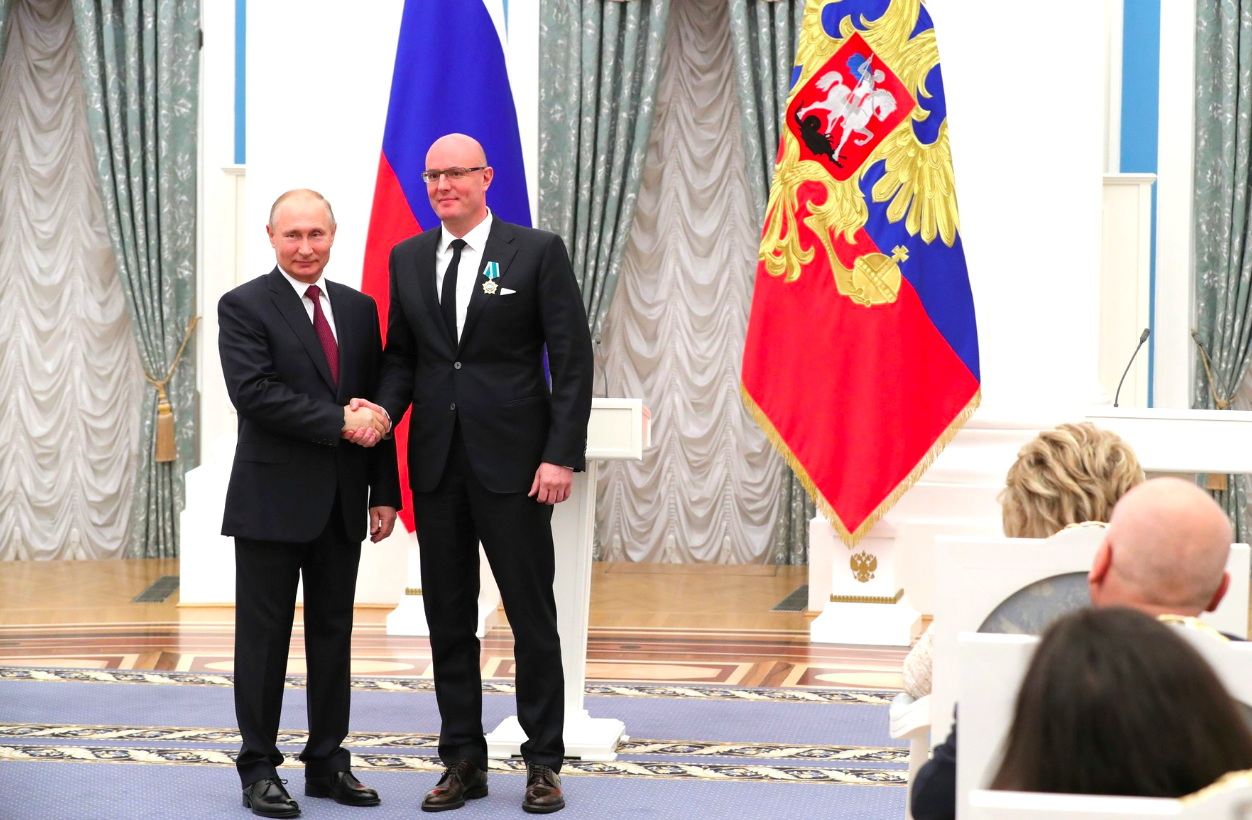
The company challenged other media owners as well in its pursuit of additional holdings.
Gazprom Media filed a lawsuit in 2017 against Igor Danilov, its co-owner of Media-Press AO, the publishing house behind the magazine and television guide Panorama-TV. Danilov held 49 percent of the company; Gazprom Media was majority owner. The company claimed Danilov controlled his stake in the company illegally through a chain of Russian and Cyprus entities. Russian law limits the percentage of shares a foreign company can hold in a media publication to under 20 percent.
Danilov, a founder of Panorama-TV, was dismissed from his post as director general of Media-Press. His replacement, Aleksey Blinov, was nominated for the position by Gazprom Media. In response to his dismissal, Danilov published an open letter claiming that Gazprom Media employees were “exerting unprecedented pressure” on Media Press. Gazprom Media’s lawsuit against Danilov was filed a short time later; it was later suspended in May 2017.
RELIEVING AN OLIGARCH; DOUBLING RADIO HOLDINGS
In 2014, Gazprom Media bought up another package of companies, this time from the oligarch Vladimir Potanin, for $602 million. Included in the deal were the television stations TV3, Pyanitsa, and 2x2, as well as four radio stations and the film studio Central Partnership. The deal almost doubled the number of radio stations owned by Gazprom Media; as of 2018, it was one of the largest radio holdings in Russia, in terms of number of stations and size of audience.
Potanin said at the time of the sale that he no longer wanted to run a media business. “Projects that are oriented around creativity are worse to regulate, worse in financial value, worse to manage,” he said.
